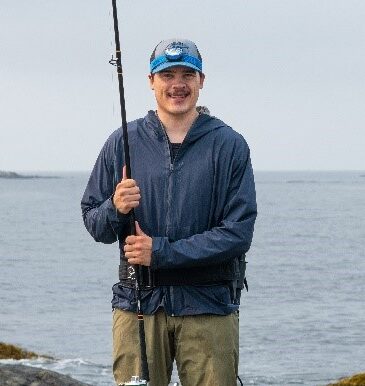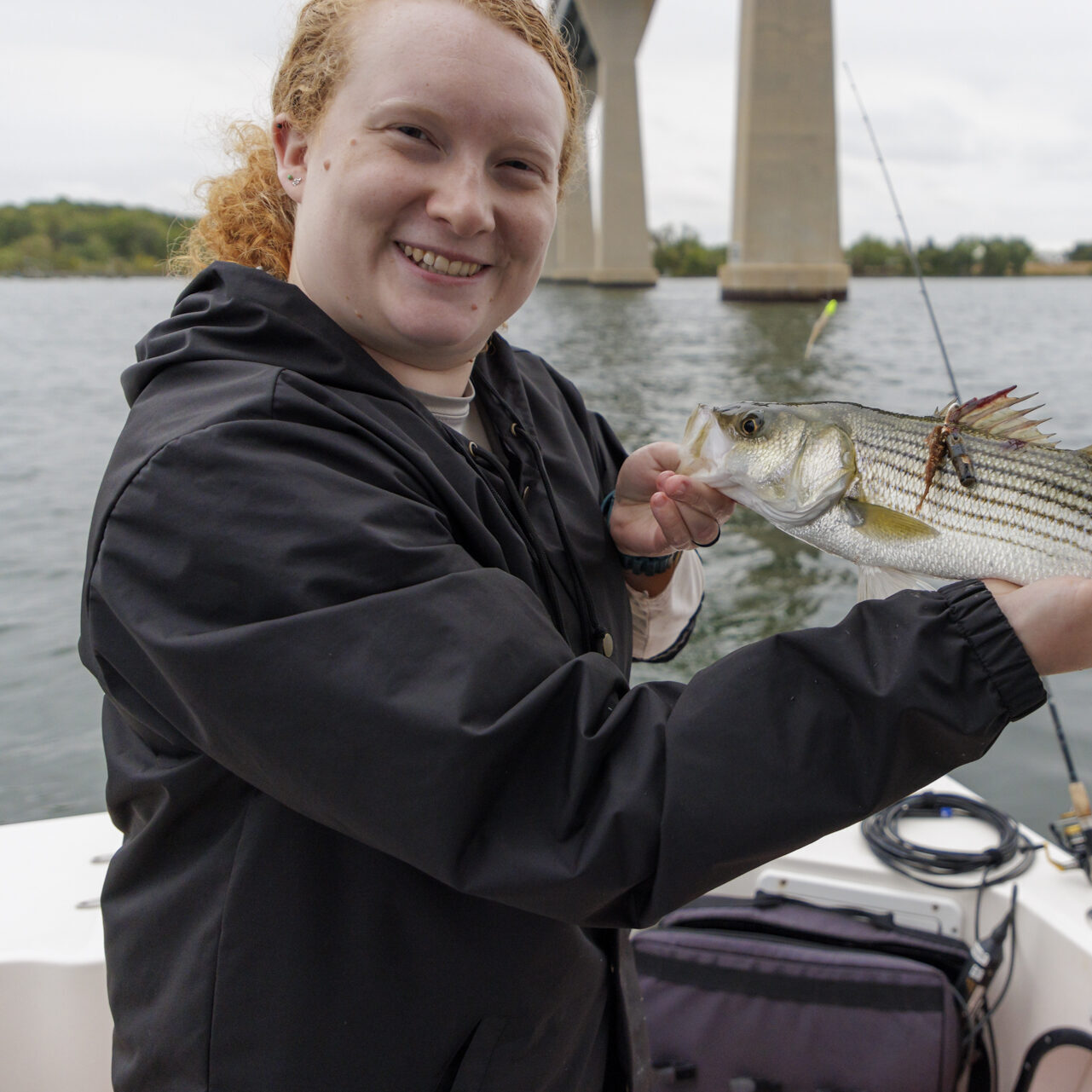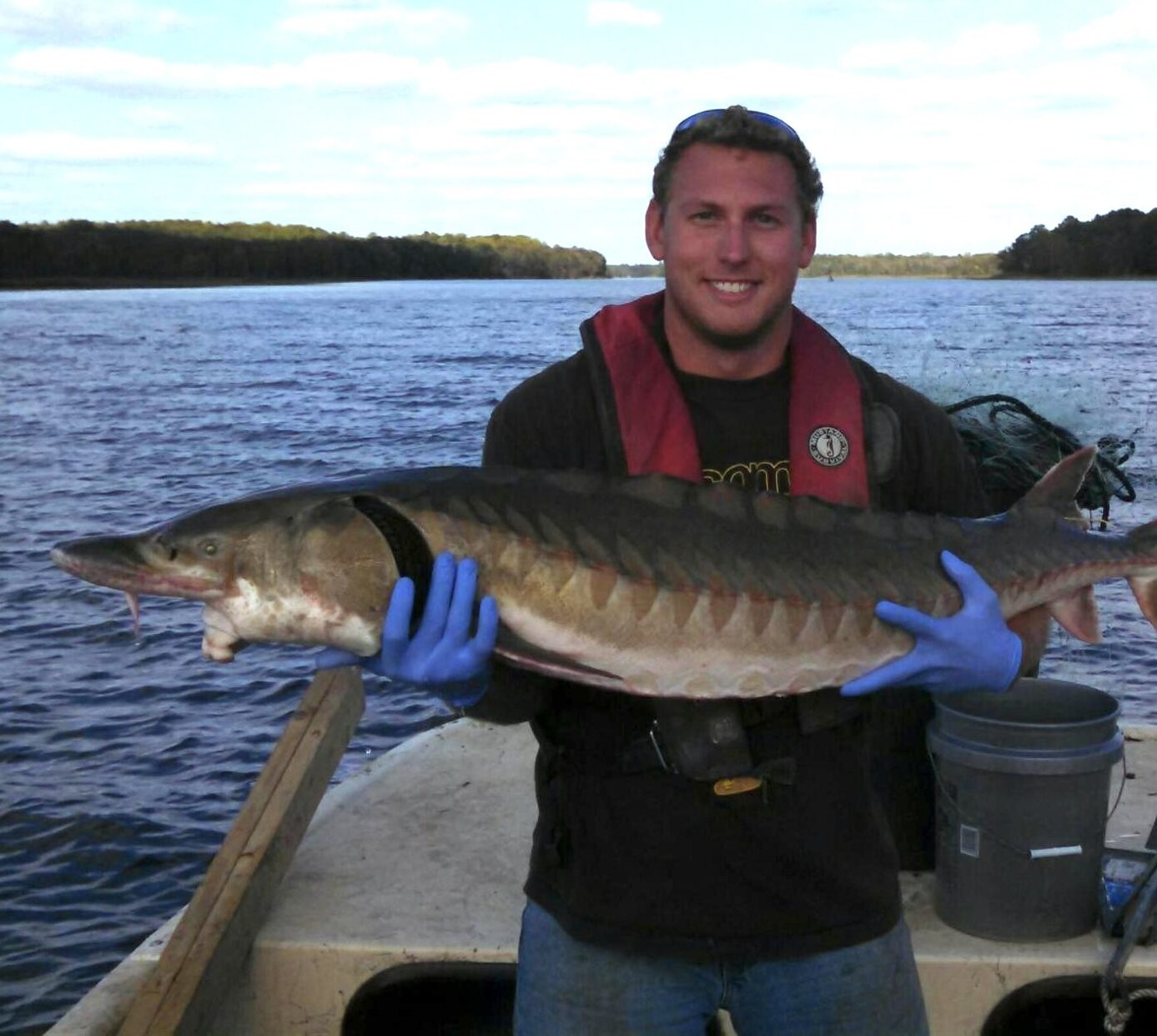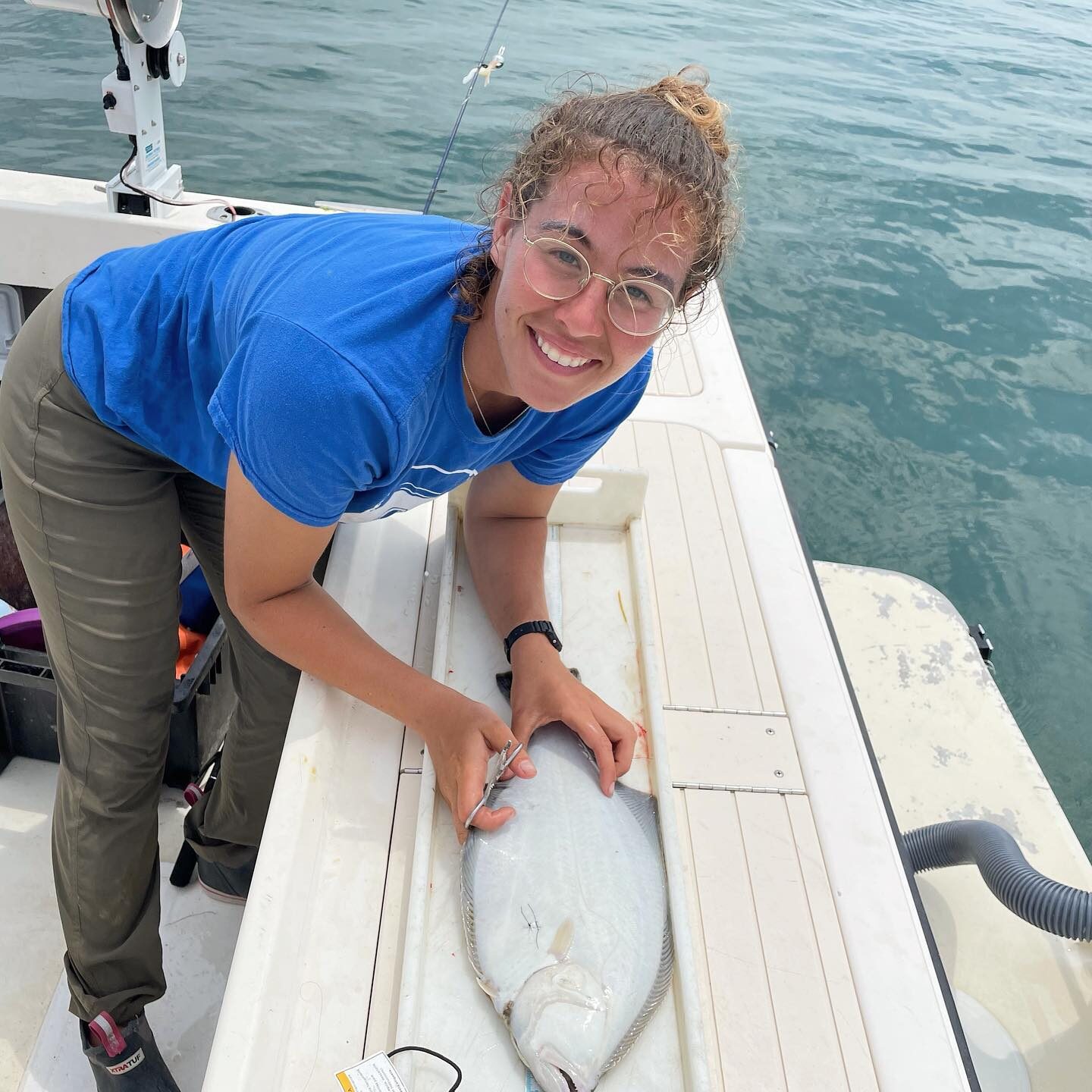The ACT Network raises funds each year to support student attendance at scientific conferences related to animal telemetry. The next application deadline is still to be determined.
2025 Awardees

Ben Gowell
University of New England
Ben Gowell is a 4+1 graduate student at the University of New England (UNE), where he is conducting research on the stock composition, natal origins, habitat use, and migratory behavior of striped bass. His research combines acoustic telemetry with trace element chemistry of non-regenerative scales to link migratory movements to spawning origins. This innovative approach aims to improve understanding of striped bass stocks and movement patterns, particularly in Maine’s recreational fisheries, with the goal of informing better management and conservation strategies. Ben will present his findings at the 2025 American Fisheries Society (AFS) meeting in San Antonio, TX, using the ACT Network and MARACOOS Conference Award.
Ben is set to graduate with a bachelor’s degree in Marine Science and a minor in Chemistry in May 2025, with plans to complete his master’s degree by December of that year. He has worked in UNE’s Shark and Fish Laboratory and the Marine Mammals and Communities Laboratory, beginning his master’s thesis research in his junior year. Passionate about fisheries ecology and biology, Ben also serves as the President of UNE’s student subunit for the Atlantic International Chapter of AFS. Outside of research, Ben enjoys surfcasting along Maine’s coastline.

Rachel Kelmartin
George Mason University
Rachel Kelmartin is a Virginia Sea Grant Graduate Fellow at George Mason University (GMU), where she is conducting research on recreational catch and release mortality (CRM) of striped bass (Morone saxatilis) in the Chesapeake Bay. Currently, the Atlantic States Marine Fisheries Commission regulates the Atlantic fishery with a fixed 9% CRM rate, but Rachel’s research seeks to understand how CRM varies with temperature. By leveraging recent advancements in acoustic telemetry, her work aims to assess CRM across seasons in situ, providing valuable insights for the sustainable management of striped bass. With the population facing challenges from poor juvenile recruitment, managing recreational release mortality is a controllable factor for regulation.
Rachel earned her bachelor’s degree in biology with a concentration in marine and freshwater biology from GMU. She worked for seven years in GMU’s Fisheries Ecology Lab under Dr. Kim de Mutsert and Dr. T. Reid Nelson, gaining hands-on field and management experience. Rachel plans to use the ACT Student Conference Award to present her research at the 28 th Biennial Coastal & Estuarine Research Federation in Richmond, VA. After earning her graduate degree, Rachel aims to work with Virginia’s Department of Wildlife Resources to contribute to wildlife conservation and public engagement.

Jake Mathews
University of North Carolina -Wilmington
Jake Mathews is a Ph.D. student at the University of North Carolina at Wilmington, where he is studying the migration dynamics of Atlantic sturgeon in a data-deficient southeastern river system. His research employs acoustic telemetry to track the movement patterns of adult, sub-adult, and juvenile Atlantic sturgeon in the Cape Fear River, NC, with a focus on migration timing, spawning ground residency, and habitat use. In collaboration with the Atlantic Cooperative Telemetry Network, Jake is also investigating the sturgeon’s coastal ocean migration and behavior at a regional scale. The results from his research are vital for informing conservation and management strategies and supporting protection efforts for this federally endangered species.
Jake will present his research at the 7 th International Conference on Fish Telemetry in Traverse City, MI, with a talk titled “Acoustic Monitoring Across Multiple Spatial Scales Informs the Migratory Dynamics of Adult Atlantic Sturgeon in a Data-Deficient Southern River.”
He holds an undergraduate degree from Virginia Wesleyan College and previously worked with the Delaware Division of Fish and Wildlife, contributing to Delaware Bay crab and finfish trawling projects. It was during this time that Jake developed an interest in anadromous fisheries research, particularly acoustic telemetry, which led to his current research focus.

Brittney Scannell
Stony Brook University
Brittney Scannell is a Ph.D. student at Stony Brook University School of Marine and Atmospheric Sciences, where she uses acoustic telemetry to study how local species, including sharks, skates, and fish, utilize offshore artificial reefs managed by the New York State Department of Environmental Conservation (NYSDEC). Artificial reefs, constructed from materials such as vessels, railcars, and recycled bridge components, have been a cornerstone of New York’s fisheries management since the 1920s. Brittney’s research focuses on fine-scale movement within reef areas, migration patterns between reefs, and how the structure and age of reef materials influence species habitat preferences.
In collaboration with the NYSDEC, her work aims to inform conservation strategies for artificial reef creation and management, benefiting local species. With support from the ACT Network and MARACOOS, Brittney will present her findings at the 2025 International Conference of Fish Telemetry, showcasing a fine-scale VPS array used to create seasonal home range models of Black Sea Bass on the Shinnecock Artificial Reef.
Brittney holds a bachelor’s degree in coastal environmental science from Stony Brook University. As an undergraduate, she began volunteering in the Peterson Community Ecology Lab, where she later pursued her Ph.D. Outside of research, Brittney enjoys coding and creating data visualizations for public outreach.
ACT Network Conference
Past Awardees
2025
Ben Gowell (University of New England)
Rachel Kelmartin (George Mason University)
Jake Matthews (University of Nort Carolina – Wilmington)
Brittney Scannell (Stony Brook University)
2024
Rachel Roday (University of Delaware)
Chase Wunder (Rutgers University)
2023
Benjamin Marsaly (University of Delaware)
Michelle Proenca (University of Florida)
2022
Nicholas Coleman (University of Maryland Center for Environmental Science)
For more information about the ACT Network or to find out how to become a member, please contact east.coast.telemetry@gmail.com
